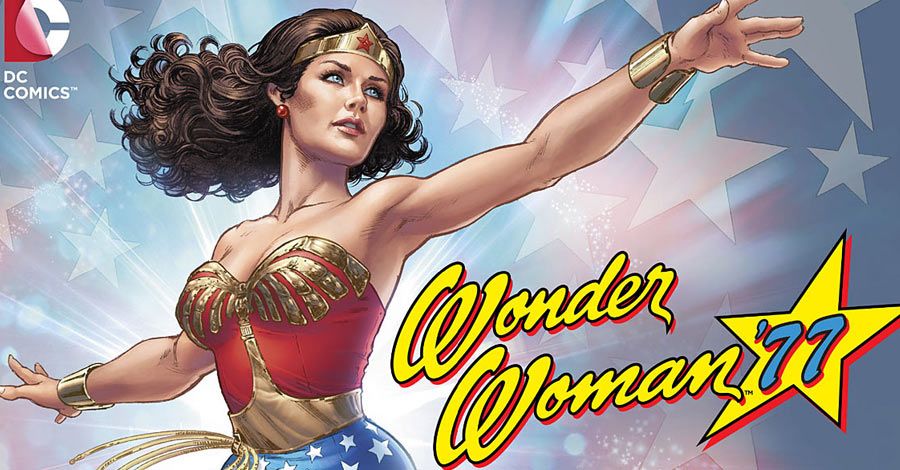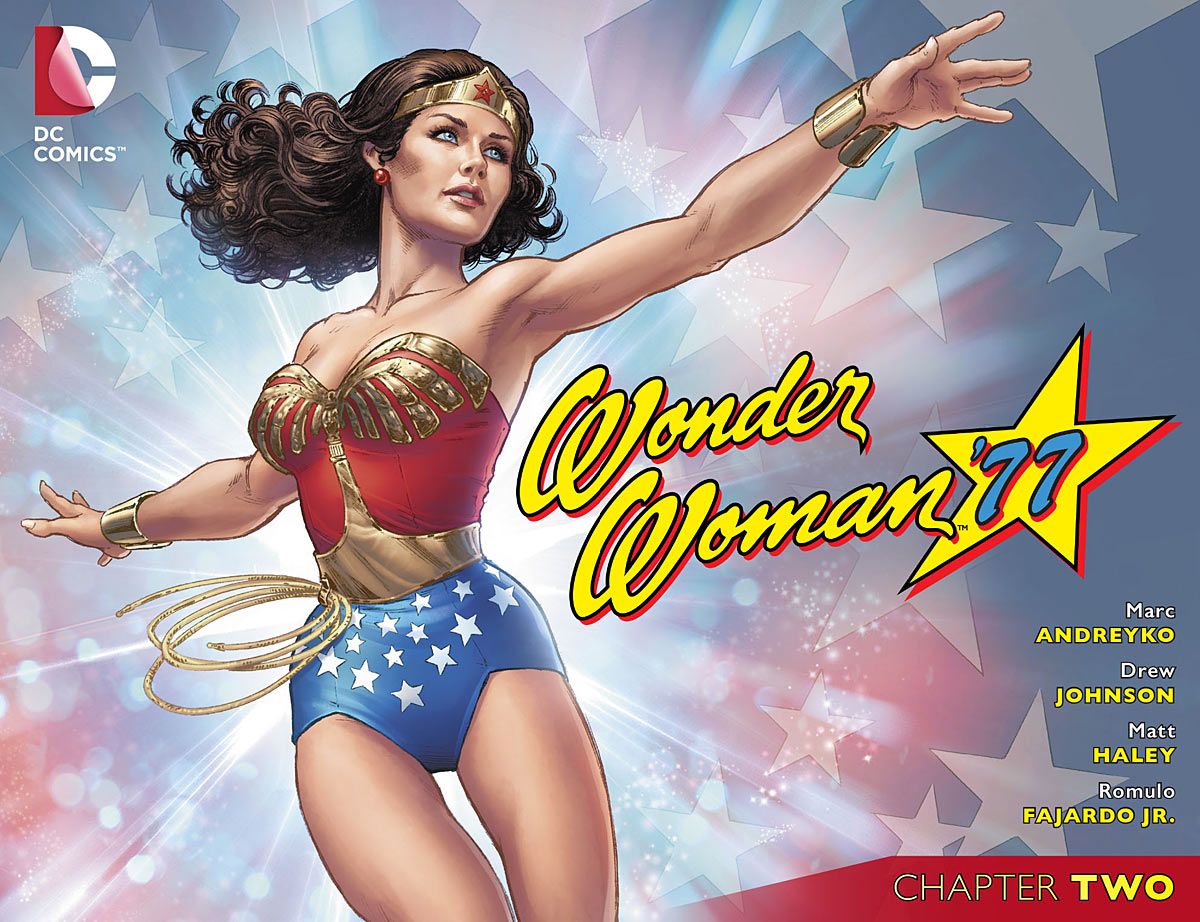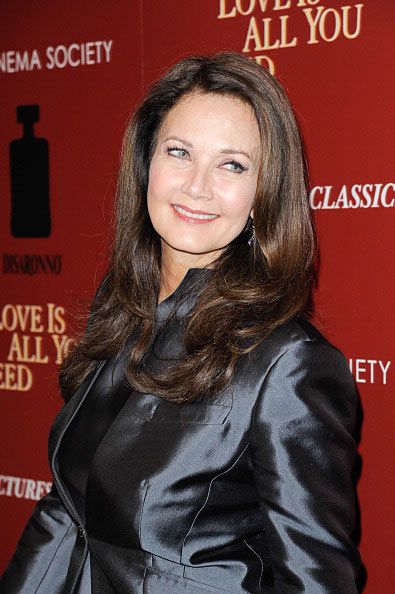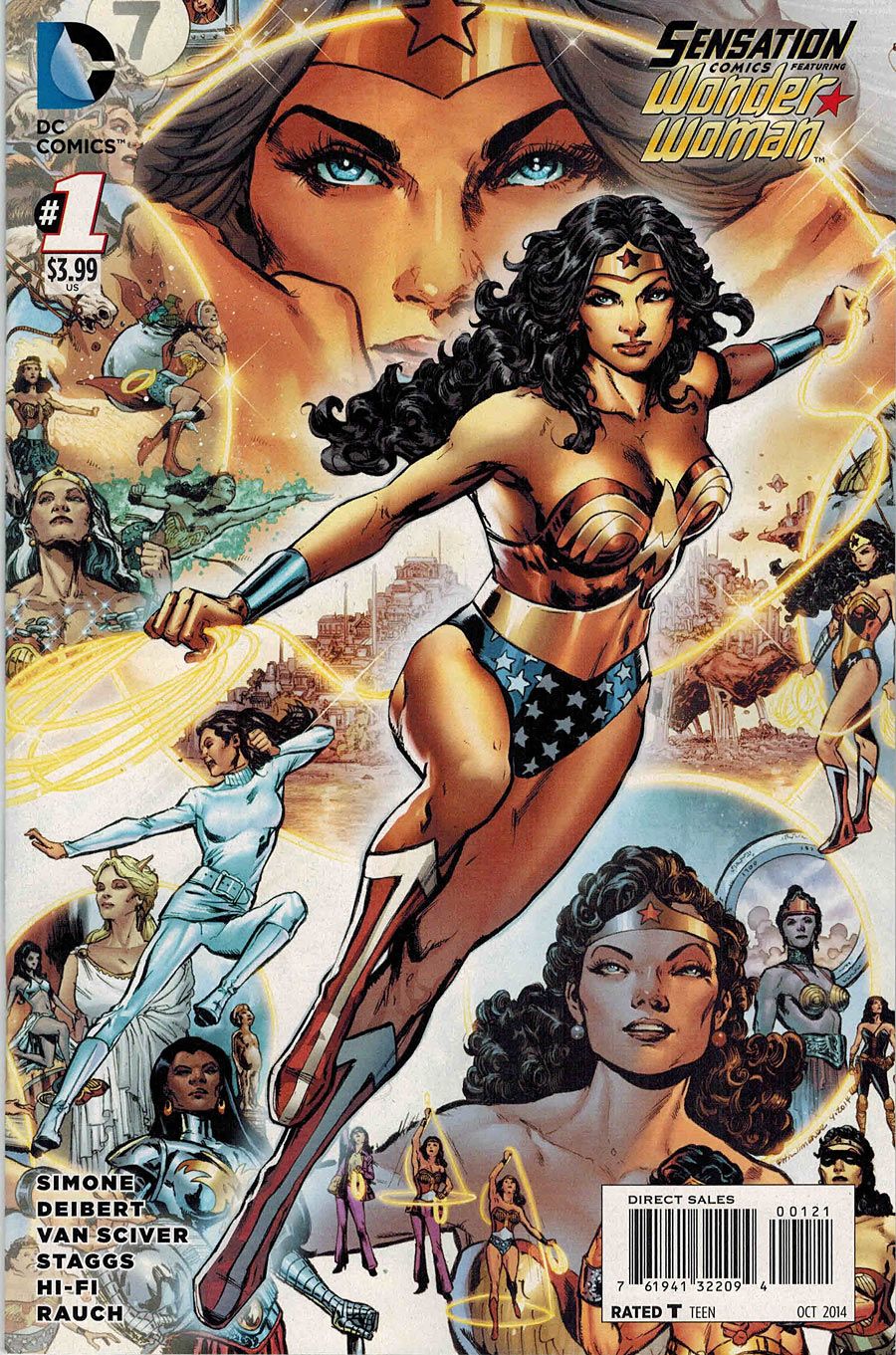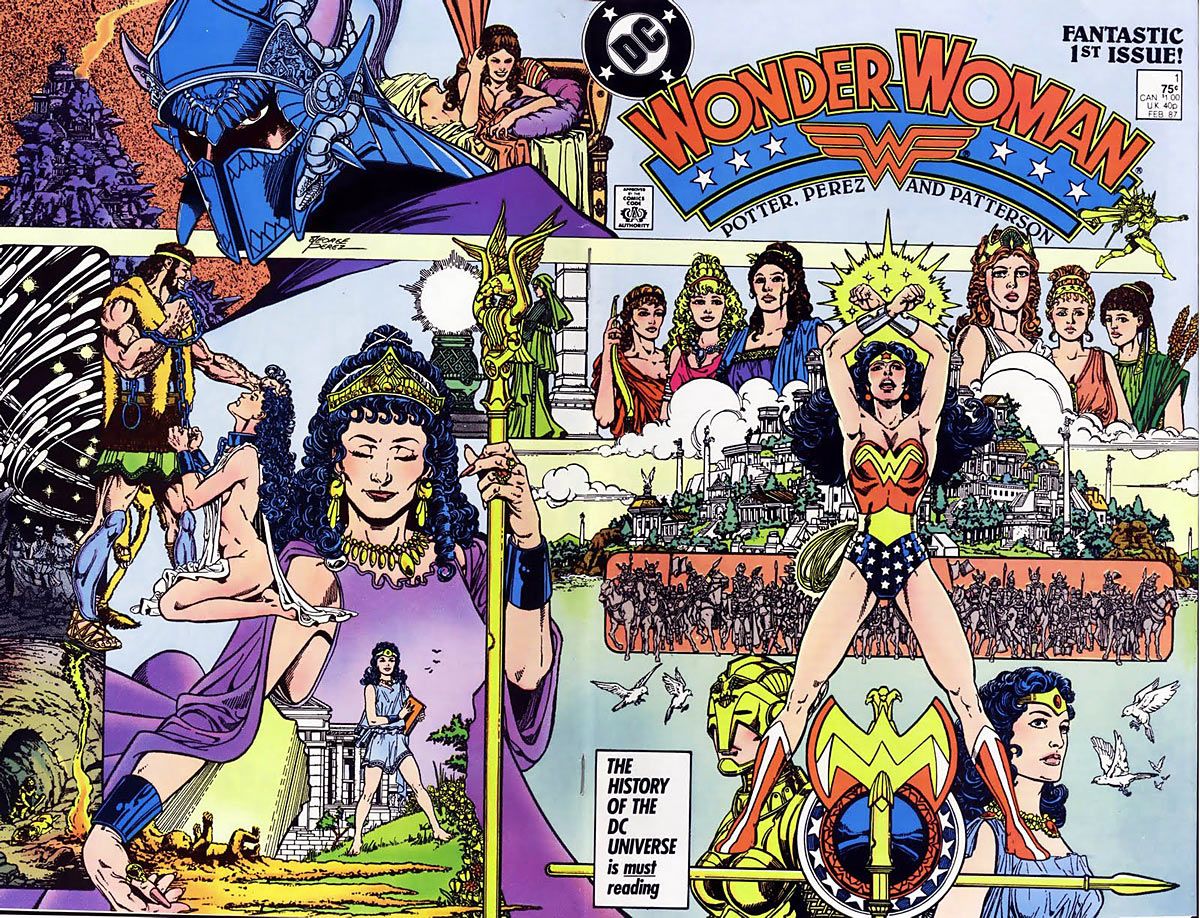THE MISSION is a weekly column spotlighting diversity in comic books, graphic novels, and popular entertainment.
In 1951, Linda Jean Córdova Carter was born, the daughter of Juanita Cordova, a woman of Mexican and Spanish descent.
In 1975, the "Wonder Woman" television series premiered, based upon the DC Comics character created by William Moulton Marston, and had an impact with ripple effects seen to this day.
I'm not going to get into the history of Wonder Woman, as author Jill Lepore has tackled that subject in detail in the new book "The Secret History of Wonder Woman."
The fact is that Lynda Carter, a Latina, portrayed one of the most iconic (Caucasian) female characters and intellectual properties in global culture, and gained the admiration, fan base and affection of millions and millions of people over decades.
I don't know when Lynda Carter revealed her Latina heritage to the world, but it's reasonable to assume that if the people of influence behind the "Wonder Woman" series knew about it at the time, she would not have received the role that changed her life and made an indelible impression on the character.
Let's be straight, it's likely most people thought that Lynda Carter was 100% White, so what Lynda managed to do was pass, for strategic reasons, and God bless her for doing it... because the Lynda Carter Wonder Woman became a symbol for many women and girls.
I didn't realize how much Lynda's Wonder Woman impacted women across ethnic and cultural lines until I was standing on the PATH train one morning on the way to work, going from Jersey City, NJ to New York City. I was reading the trade paperback "Wonder Woman: Down to Earth" written by Greg Rucka, and a Latina woman in her thirties or forties wearing a business suit started a conversation with me. We talked about how Wonder Woman was her hero growing up, and when I asked her if she read a lot of Wonder Woman comic books, she told me she had not read one of them.
Not one.
The impact on her was made by the television show.
I told her what was happening with Wonder Woman in Greg Rucka's run, and that she could get collected editions in the book stores.
The idea that a Latina was inspired by a Caucasian superhero portrayed by a fellow Latina is what blew my mind.
How many other Latinas were like that woman? Grew up on television shows, and saw this extraordinarily attractive "White" woman playing a superhero, her image on clothing and posters, and adopted this woman into their hearts?
It's understandable, because there were no Latina superheroes, in either the television or comic book medium, at the time.
Now that we know Lynda is Latina, it begs the question: Did young Latinas, on some level, perceive the commonality between themselves and the Latina Wonder Woman on their television screens?
Various studies on own-ethnicity bias and cross-race facial recognition suggest the ingrained psychology towards perception of one's own race before someone else's race.
So is it possible? Yes.
Likely? Who knows.
If we choose to dismiss that possibility as a factor, then we look to the other point: The admiration of the Lynda Carter Wonder Woman, in part because there were no publicly or clearly identifiable Latina heroes as an alternative for young Latinas.
The "Wonder Woman" television series ended in 1979.
How are we doing 36 years later?
Undoubtedly there are more Latina heroes in popular fiction, both cinematic and in print, right?
Can you name one right off the top of your head?
I can't.
Why is that?
Two years ago, based on reports, 17 percent of Americans were Latino.
According to Census Bureau reports from 2008, one out of every three Americans will be of Latino descent by the year 2050. According to a Nielsen report from 2013, Latinas are expected to represent 30 percent of the American female population by 2060.
Latinos are the fastest-growing population in the Unites States. They have a collective buying power of 1.2 trillion dollars per year.
What would be the acceptability and popularity potential for a Latina superhero, created by one of the two big comic book publishers or their parent companies? A character designed to have broad appeal?
If Marvel Comics pulled a rabbit out of their hat with the Pakistani-American Ms. Marvel character, could they do it again?
It would be interesting to see, because the magic of Lynda Carter's Wonder Woman has not managed to live through to the present-day Wonder Woman, in terms of popularity.
"Wonder Woman's" Meredith & David Finch Discuss Donna Troy's New 52 Introduction
Sales of the "Wonder Woman" title have not hit the triple digits in quite some time, which is amazing when you consider how many people know about Wonder Woman. Even now, the present run of the title by Meredith and David Finch is being viewed less favorably by consumers than the preceding run by Brian Azzarello and Cliff Chiang.
Warner Bros. has not managed to crack the Wonder Woman formula for television or the big screen, and we'll soon find out if they get it right in the court of public opinion with the upcoming 2017 film starring Gal Gadot.
But... BUT... what has arrived is "Wonder Woman '77," the digital-first comic from DC Entertainment chronicling the adventures of the Lynda Carter Wonder Woman within the continuity of the old television show. Eventually, the digital series will be released in a printed volume, with widespread availability, I'm sure.
Will "Wonder Woman '77" sell through better than the newer "Wonder Woman" collections?
We'll find out, but the presence of the television show-based title implies the understanding on DC Entertainment's part of the appeal and power of the character from those times.
Right now, though:
"Wonder Woman" is outsold by Marvel's "Spider-Woman," a character without the benefit of Wonder Woman's tenure and popularity, or a film in development.
Lynda Carter, at 62 years old, is still performing and looks amazing.
One of the two biggest news events about Wonder Woman these days is a comic book representing a television show from almost 40 years ago, with a White character portrayed by a Latina.
There is no single, iconic Latina superhero in American entertainment.
And those are the facts.
George Perez and Phil Jimenez, two of the most popular artists in the history of Wonder Woman, are Latino males.
On a recent episode of the FanBros show, Axel Alonso, the Editor-in-chief of Marvel Comics and a Latino male, stated that his favorite non-Marvel Comics superhero... is Wonder Woman.
Clearly, she made an impression on the guys, as well.
Joseph Phillip Illidge is a public speaker on the subjects of race, comics, and the corporate politics of diversity. In addition to his coverage by the BBC and Publishers Weekly, Joseph has been a speaker at John Jay College of Criminal Justice, Digital Book World's forum, Digitize Your Career: Marketing and Editing 2.0, Skidmore College, Purdue University, on the panel "Diversity in Comics: Race, Ethnicity, Gender and Sexual Orientation in American Comic Books," and at the Soho Gallery for Digital Art in New York City.
Joseph is the Head Writer for Verge Entertainment (www.verge.tv), a production company co-founded with Shawn Martinbrough, artist for the graphic novel series "Thief of Thieves" by "The Walking Dead" creator Robert Kirkman, and video game developer Milo Stone. Verge has developed an extensive library of intellectual properties for transmedia development. Live-action and animated television and film, video games, graphic novels, and web-based entertainment.
His latest project is "The Ren," a 200-page graphic novel about the romance between a young musician from the South and a Harlem-born dancer in 1925, set against the backdrop of a crime war and spotlighting the relationship between art and the underworld. "The Ren" will be published by First Second Books, a division of Macmillan.

